The following courses are part of the Joy of Living program. These are Buddhist teachings offered as online courses.
For Vajrayana Online courses, please scroll down this page.
For Vajrayana Online courses, please scroll down this page.

Meditation awakens us to the joy of the present moment. In these four short teachings, Yongey Mingyur Rinpoche explains what meditation is and how to get started. It's not as hard as you think. You don't have to be Buddhist to meditate. You don't even have to be religious. All you need is a sincere desire to open your heart and mind to the present moment.
Have you ever felt a need to calm the mind and learn how to better deal with everyday stress, anxiety, and emotions?
We all do our best to manage the challenges of modern life. What if these challenges could help us discover inner calm and emotional balance? In this level, Mingyur Rinpoche will teach us how meditation can transform the way we relate to stressful situations and challenging emotions, and embrace all aspects of life with mindful awareness.
This training includes experiential teachings by Yongey Mingyur Rinpoche, guided meditations and moderated discussions with Tergar guides, as well as weekly on-the-cushion/off-the-cushion meditation exercises. These teachings are suitable for people of all faiths, as well as both beginning and experienced meditators.
In this six-week course, we will learn how to meditate on loving-kindness and compassion, a profound practice that helps us open our hearts to others and relax the self-centered tendencies that lead to anxiety, dissatisfaction, and suffering. Cultivating loving-kindness and compassion helps us to see the basic goodness that all beings share. By relating to others in an open hearted way, we bring peace to the mind and develop a sense of confidence and purpose. This, in turn, naturally brings harmony to our relationships and enables us to work with challenging situations more effectively. Each lesson includes experiential teachings by Mingyur Rinpoche, as well as guided meditations and moderated discussions with a senior Tergar instructor. The first video—An Introduction to Loving-kindness and Compassion Meditation—will be available as soon as you register.
In this six-week course, we will explore the practice of insight meditation. By bringing our unchallenged beliefs and patterns into the light of awareness, we can see how our rigid ideas often blind us to the richness of our true nature. The wisdom that arises through insight meditation allows us to see our inner experience clearly. This leads to a sense of freedom, well-being, and confidence that is rooted in awareness itself and available to us each and every moment. Each lesson includes experiential teachings by Mingyur Rinpoche, as well as guided meditations and moderated discussions with a senior Tergar instructor. The first video—An Introduction to Insight Meditation—will be available as soon as you register.
Vajrayana Online is Tergar Meditation Community’s subscription-based online program for Vajrayana students. Vajrayana Online is a virtual space created for students to explore topics and practices from the Tibetan Buddhist tradition.
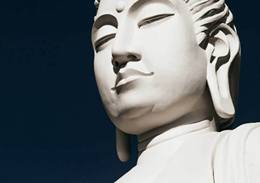
Our three-part Immersion course invites you into an experiential exploration of The Way of the Bodhisattva, going beyond theories to provide practical instructions on how to live our life with a sense of purpose. Each course is filled with opportunities to learn from leading voices in the Buddhist world and to engage with a global community of meditators.
Each of the courses of the Immersion contain general modules in which the content of the course is presented, as well as deepening modules. In these latter periods, the intention is to allow you to review course materials and practices, as well as foster a greater sense of community amongst participants and course guides.
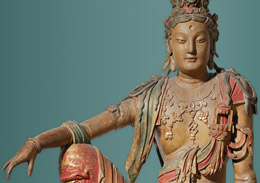
This course trains the mind in awareness, loving-kindness and compassion, and wisdom in order to deepen and expand these qualities. We will use one of the most treasured texts of the Buddhist tradition as our guide: The Way of the Bodhisattva by the 8th-century Indian master Shantideva. This Buddhist classic explains how to cultivate bodhichitta, the heartfelt commitment to help all beings awaken to their true nature.
Mingyur Rinpoche will bring this teaching to life, highlighting how these ancient teachings can help us navigate the challenges of everyday life by training and transforming our minds. The course includes a series of teachings and live webinars with Mingyur Rinpoche, as well as a range of other materials.

Dzogchen is considered the highest and most profound form of meditation in the Nyingma School of Tibetan Buddhism. Its teachings lay out a path of meditation that reveals the pure, nondual awareness – or rigpa – that is the mind’s true nature. Once recognized, the experience of rigpa radically transforms our experience of thoughts, emotions, perception, fundamentally changing the way we see ourselves and relate to the world.
In this Dzogchen immersion course, we will explore the view and practice of Dzogchen, from an initial overview of its unique lineage and preparatory practices, to in-depth instructions on the recognition of pure awareness and how to sustain that recognition and discover liberation. This course has prerequisites.

The teachings on the six bardos are some of the most important and direct in the Nyingma and Kagyu schools of Tibetan Buddhism. This lineage of practical instructions helps you learn to contemplate the reality of death, to experience the radiant purity of awareness, and to stabilize this experience and integrate it with every aspect of your life. This prepares you for dying and offers the most meaningful path for living.

The bardo teachings of Tibetan Buddhism are profound and precious teachings that address both how to approach the transitory, momentary experience of this life and how to use this wisdom to skillfully and intentionally navigate the process of our own dying and rebirth. At its heart, the bardo teachings are concerned with the core teaching of impermanence, both in life and in death, and with the liberation that comes with recognizing the real nature of the mind in the midst of all that changes.
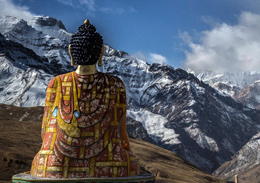
For over a thousand years, the people of Tibet have preserved a unique form of Buddhism that was originally taught and practiced in ancient India. The hallmark of the Tibetan tradition is a graded approach to meditation, spiritual study, and ethical living embodied in the "three vehicles" of Buddhism: the Foundational Vehicle, the Great Vehicle, and the Vajra Vehicle. In Tibetan Buddhism, these three vehicles are practiced as one unified system. In this course, we will explore the rich history, philosophy, and meditative traditions of Tibetan Buddhism and its three yana spiritual path.
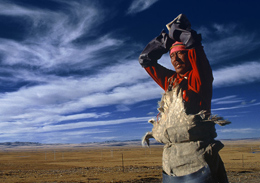
The Vajra Vehicle of Tibetan Buddhism is considered a “short-cut” to enlightenment. This profound approach to awakening is rooted in the understanding that buddhahood is not a goal to be achieved, but an immanent reality that we can recognize in the present moment. Various tools are used to bring about this recognition: meditations that employ the imagination and symbolic imagery, exercises designed to harness the power of the body’s subtle energies, and pith instructions that guide the meditator to a direct experience of the luminous purity of the mind’s true nature.

The bardo teachings of Tibetan Buddhism are profound and precious teachings that address both how to approach the transitory, momentary experience of this life and how to use this wisdom to skillfully and intentionally navigate the process of our own dying and rebirth. At its heart, the bardo teachings are concerned with the core teaching of impermanence, both in life and in death, and with the liberation that comes with recognizing the real nature of the mind in the midst of all that changes. In this course Mingyur Rinpoche himself will guide us on this journey through the lens of his just-released book, In Love with the World, that chronicles in intimate detail his recent, very personal experience of death and rebirth.

Mahamudra is considered the most profound and direct path to awakening in the Kagyu school of Tibetan Buddhism. This lineage of practical instructions helps us to experience the radiant purity of awareness and to stabilize this experience and integrate it with every aspect of our lives. For centuries, teachings on Mahamudra have been passed down by some of Tibet’s greatest masters, including Milarepa and Gampopa. In this course, we will learn the most important principles and practices of the Mahamudra tradition. Our journey will be based on important texts from the Mahamudra lineage and video teachings from Mingyur Rinpoche on key points of nature of mind practice.
Open to those who have received both ngondro transmission and pointing out instructions from a qualified lineage holder of either the Kagyu or Nyingma traditions.
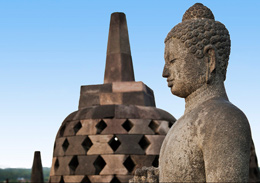
In all of Buddhism, the Four Noble Truths are the foundation of the path of awakening. These four truths lay out a map of the Buddhist path in which all the teachings can be explored and practiced. These truths were never meant to stay as intellectual knowledge but were meant to be practiced in order to reap the result of becoming buddhas ourselves. This is not achieved through adding something new but through simply recognizing what is already present within each one of us. The Four Noble Truths were the first teachings the Buddha gave 2500 years ago, and they continue to be practiced to this day throughout the whole Buddhist world. In this course, we will learn the most important principles of the Four Noble Truths and how to move from understanding to direct experience in meditation.

The Buddhist path to awakening transforms the way we see ourselves. Through the practice of meditation, we learn to examine our beliefs and assumptions and to explore our experience in the present moment. This exploration leads to a profound shift in perspective as we begin to see the unlimited potential of the mind and the spacious, fluid nature of perception. In Tibetan Buddhism, the principles that guide this inner exploration are presented as the four systems of Buddhist thought. These four philosophical systems are practical in nature. They are roadmaps of the mind that can guide us in meditation and help us to undo the causes of confusion and suffering.
The Ngondro Immersion course spans twelve modules and will take you deeply into the underlying principles and practical instructions of the Tibetan Buddhist foundation practices, or ngondro, as they are known in Tibet. We will begin by spending time learning about the key elements of ngondro practice and also about the main figures in the Nyingma and Kagyu lineages. After that, we will dive in and learn about each of the outer and inner ngondro practices. Over the length of the course we cover all the important aspects of these practices. Included as part of your Vajrayana Online subscription.

Nectar of the Path is a concise liturgy that was composed by Mingyur Rinpoche to distill the key points of the Buddhist path as a reminder for daily practice. Each module includes teachings from Mingyur Rinpoche, detailed practice instructions, readings and suggestions for study, as well as webinars and short introductions from Senior Tergar Instructors. Included as part of your Vajrayana Online subscription.

The entire path of Tibetan Buddhism is framed as a journey of awakening that weaves together teachings and practices from three different approaches. These approaches - the Hinayana, Mahayana, and Vajrayana - are traditionally referred to as "vehicles," or "yanas," because they can carry us from confusion to the state of enlightenment. This month we will begin our exploration of the three yanas by learning about the role that the view, meditation, and conduct play in the Buddhist tradition and in each of the three vehicles. Included as part of your Vajrayana Online subscription and open to all those with interest in deepening their understanding of the principles and practices of Tibetan Buddhism.

Vajrayana Online's Retreat Course is a comprehensive resource on all aspects of Buddhist retreat to inspire people to do solitary retreat and give participants the tools and knowledge to plan a retreat into their yearly calendar. The course includes advice on retreat from Mingyur Rinpoche and other contemporary teachers as well as traditional resources on retreat such as Jamgon Kongtrul's Retreat Manual, Dudjom Rinpoche's Mountain Dharma, and the Life of Milarepa. Included as part of your Vajrayana Online subscription and open to all those with interest in deepening their understanding of the principles and practices of Tibetan Buddhism.
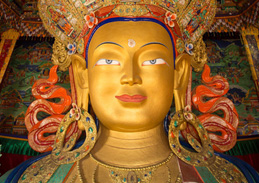
The heart of the Buddha’s teachings lies in the cultivation of wisdom and compassion. Wisdom helps us to uproot the causes of suffering and dissatisfaction, while compassion ensures that our journey will not only transform our own lives, but alleviate the suffering of others as well. Those who travel the path of wisdom and compassion are known as bodhisattvas – courageous individuals who have committed themselves to the awakening of all beings. The path of the bodhisattva is most clearly expressed in the principle of bodhichitta and the practice of the six paramitas. Bodhichitta is the union of wisdom and compassion, the deep insight into the nature of reality and the compassionate intention to help all beings awaken. Bodhichitta is applied in daily life through the six paramitas – the six transcendent practices of generosity, ethical conduct, patience, joyful effort, meditation, and wisdom. Open to all those with interest in deepening their understanding of the principles and practices of Tibetan Buddhism.